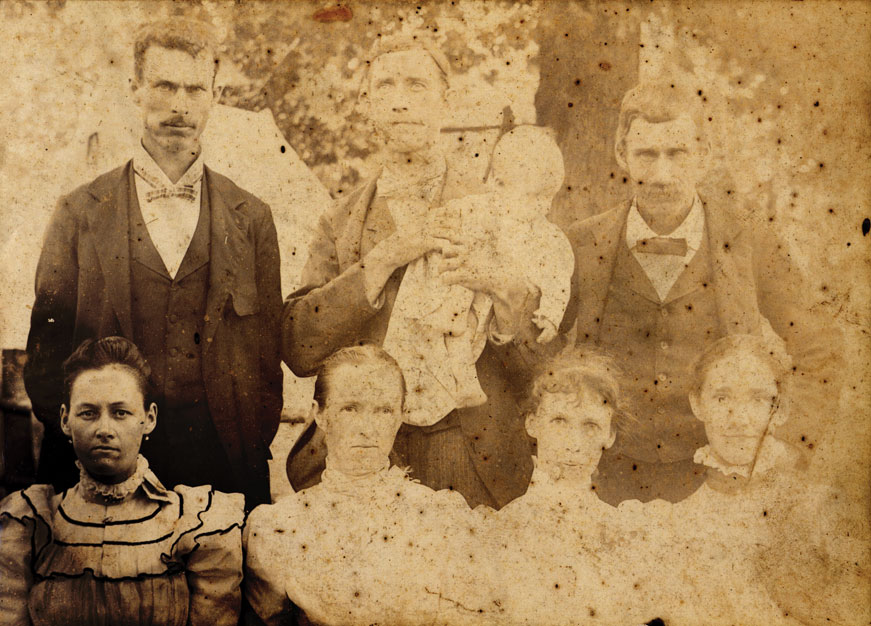
The story of the Shields-Ethridge Farm begins at the close of the 18th century, a few years after the area was ceded by the Native population and opened to American settlement. In 1798, Joseph Shields and his son Patrick, recent arrivals from Virginia, purchased adjacent tracts of land in Jackson County. The clearance of land for farming required a great deal of labor, and this encouraged settlers to have large extended families and to acquire an enslaved workforce.
In the 1820 census, James Shields who had succeeded his father and older brother as head of the family reported a household that in addition to his wife, mother, and four children, included three of his brother’s children and seven enslaved workers. When James died in 1863 the farm was divided between William and Joseph Robert and each son constructed a new farmstead.
According to family tradition, the sale of two bales of cotton during a period of high prices at the close of the Civil War paid for the construction of Joseph Robert’s home – a ‘plantation plain’ house that is today the home of descendents of Joseph Robert.
After the death of his wife in 1896, Joseph Robert invited Susan Ella, his youngest daughter, and her husband Ira Ethridge to come live with him, promising them ‘rations for one year’, free use of his land, and inheritance of the home place plus 114 acres upon his death.
The arrival of Ira brought fresh energy and new entrepreneurial spirit to the farm in the early years of the 20th century. Ira tried to keep up with scientific advances in agriculture and he was enthusiastic about new machinery and technology – he liked to buy the latest model of automobile, and in 1916 he installed his own telephone line into Jefferson.
